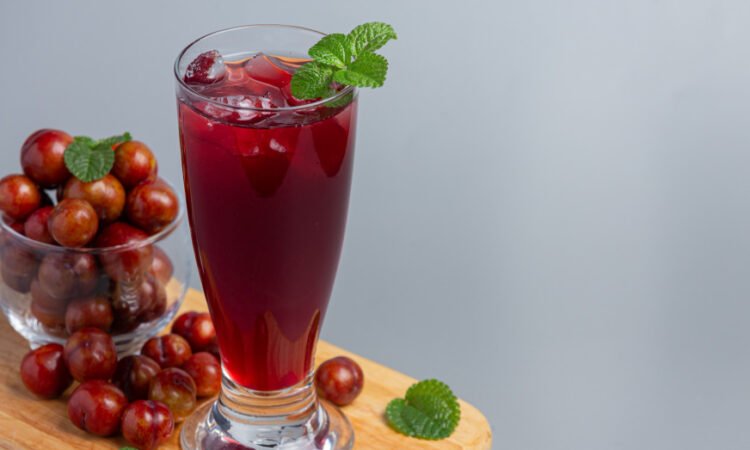
Cranberry juice offers several potential health benefits beyond its role in urinary tract health. Here are some additional benefits associated with consuming cranberry juice in moderation:
1. Rich in Antioxidants: Cranberries are packed with antioxidants, including vitamin C and various phytochemicals. These antioxidants help neutralize harmful free radicals in the body, which can contribute to overall health and well-being.
2. Heart Health: Some studies suggest that the antioxidants in cranberries may have a positive effect on heart health by reducing the risk of heart disease. They may help lower blood pressure, improve cholesterol levels, and reduce inflammation in the cardiovascular system.
3. Improved Digestive Health: Cranberries contain dietary fiber, which can aid in digestion and promote a healthy gut. Fiber can help prevent constipation and support regular bowel movements.
4. Urinary Tract Health: As mentioned earlier, cranberry juice is well-known for its potential to reduce the risk of urinary tract infections (UTIs) by preventing bacteria from adhering to the urinary tract walls. This benefit can be particularly useful for individuals prone to UTIs.
5. Oral Health: Some studies suggest that cranberry compounds may inhibit the growth of certain bacteria in the mouth, potentially reducing the risk of gum disease and cavities.
6. Anti-Inflammatory Properties: The anti-inflammatory properties of cranberry antioxidants may have a role in reducing inflammation throughout the body, which can be beneficial for overall health.
7. Weight Management: Cranberry juice is relatively low in calories and can be included as part of a balanced diet, potentially supporting weight management goals.
8. Skin Health: Antioxidants in cranberries may help protect the skin from damage caused by UV radiation and oxidative stress. This can contribute to healthier-looking skin.
9. Nutrient-Rich: Cranberries are a good source of essential nutrients like vitamin C, vitamin E, vitamin K, and various minerals like manganese.
You can make cranberry juice at home or purchase it pre-made from the store. Here’s a simple recipe for homemade cranberry juice:
Ingredients:
– 2 cups of fresh or frozen cranberries
– 4 cups of water
– 1/2 to 3/4 cup of sugar (adjust to taste)
– Optional: orange or lemon zest, a cinnamon stick, or a few cloves for added flavor
Instructions:
1. Rinse the cranberries thoroughly in a colander or strainer.
2. In a large saucepan, combine the cranberries and water. If you’re adding optional flavorings like orange or lemon zest, cinnamon, or cloves, add them to the pot.
3. Bring the mixture to a boil, then reduce the heat to a simmer. Let it simmer for about 15-20 minutes or until the cranberries burst and the liquid becomes infused with their flavor.
4. Remove the pot from the heat and let it cool slightly.
5. Strain the cranberry mixture through a fine-mesh strainer or cheesecloth into a clean container or pitcher to remove the solids.
6. Add sugar to the strained cranberry juice, starting with 1/2 cup and adjusting to your desired level of sweetness. Stir until the sugar is completely dissolved.
7. Allow the cranberry juice to cool to room temperature, then refrigerate it until it’s cold.
8. Serve the cranberry juice over ice and enjoy.
As for the best time to drink cranberry juice, there isn’t a specific time that is universally recommended. You can enjoy cranberry juice at any time of day that fits your schedule and preferences. Here are a few options:
1. In the Morning: Some people like to start their day with a glass of cranberry juice as part of their morning routine.
2. With Meals: Cranberry juice can be a refreshing beverage to accompany breakfast, lunch, or dinner.
3. As a Snack: It can also be consumed as a healthy snack between meals.
4. Before Bed: Some individuals enjoy a glass of cranberry juice before bedtime.
5. For Hydration: Cranberry juice is a good choice for staying hydrated throughout the day.
6. For Specific Health Goals: If you’re drinking cranberry juice for its potential health benefits, such as urinary tract health, you may choose to consume it strategically to support those goals.
Remember that moderation is key, as cranberry juice can be quite tart and may contain added sugars if it’s not homemade. Be mindful of your sugar intake and adjust the sweetness level to your preference when making homemade cranberry juice.
How do you Treat Pus Cells in Sperm Naturally?
The presence of pus cells in sperm, also known as pyospermia, is usually an indicator of an underlying infection or inflammation in the male reproductive system. While vitamins are essential for overall health and can support the immune system, there isn’t a specific vitamin or combination of vitamins known to directly reduce pus cells in sperm. However, maintaining good overall health through proper nutrition and vitamin intake can indirectly help the body fight infections and reduce inflammation. Here are some vitamins and nutrients that play a role in supporting immune health:

1. Vitamin C: Vitamin C is known for its antioxidant properties and its role in supporting the immune system. It may help the body combat infections. Citrus fruits, strawberries, and broccoli are good sources of vitamin C.
2. Vitamin D: Vitamin D is important for immune system function and can help the body fight off infections. Sunlight exposure and vitamin D-rich foods like fatty fish, fortified dairy products, and egg yolks can provide this vitamin.
3. Vitamin E: Vitamin E is an antioxidant that may help protect cells from damage caused by free radicals. Nuts, seeds, and spinach are sources of vitamin E.
4. Zinc: Zinc is a mineral that plays a crucial role in immune function. It may help reduce the severity and duration of infections. Foods rich in zinc include lean meats, seafood, nuts, and whole grains.
5. Selenium: Selenium is another mineral with antioxidant properties that can support the immune system. Brazil nuts, sunflower seeds, and fish are good sources of selenium.
6. Vitamin A: Vitamin A is important for maintaining the health of mucous membranes, including those in the reproductive and urinary tracts. Foods like sweet potatoes, carrots, and leafy greens provide vitamin A.
It’s important to note that while these vitamins and minerals can support immune health, they are not a replacement for medical treatment if you suspect an infection or inflammation in the male reproductive system. If you are concerned about pus cells in sperm or any other reproductive health issue, it’s crucial to consult a healthcare provider. They can perform tests, diagnose the underlying cause, and provide appropriate treatment, which may include antibiotics or other medications to address the specific issue. Follow your healthcare provider’s recommendations for the most effective and safe treatment.




